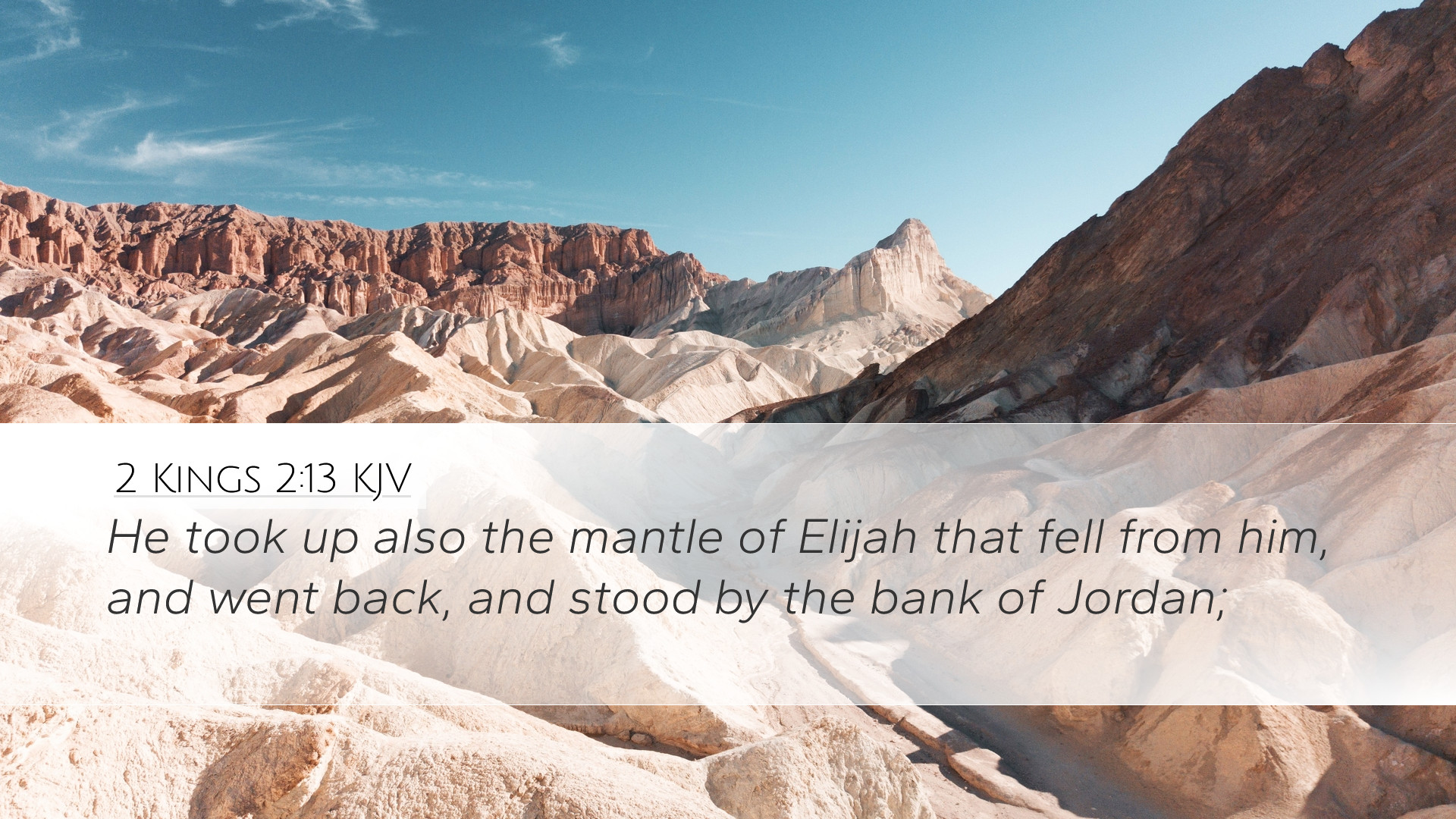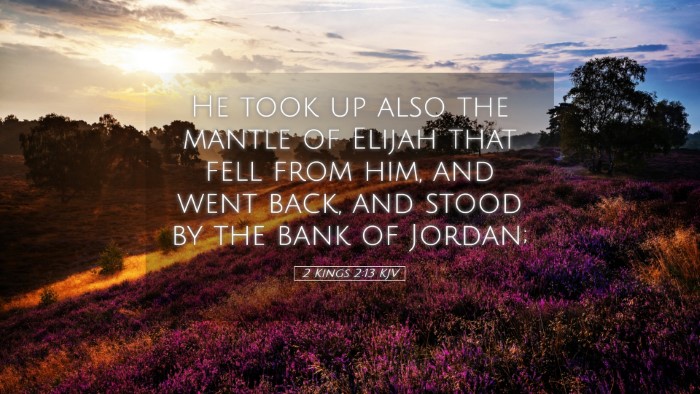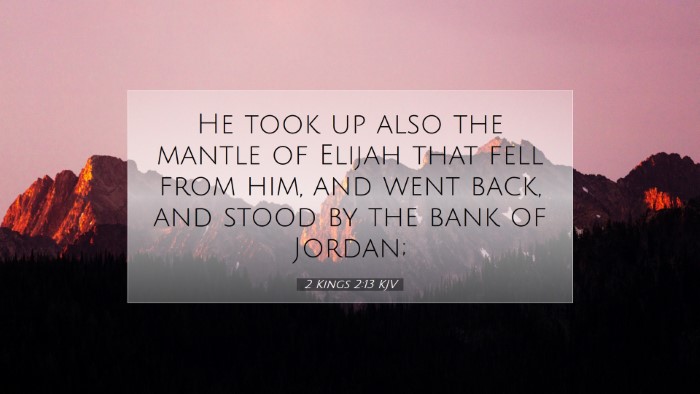Commentary on 2 Kings 2:13
Verse: "He took up also the mantle of Elijah that fell from him, and went back, and stood by the bank of Jordan."
Contextual Overview
The duality of Elijah and Elisha serves as a central theme in the text. The moment depicted in 2 Kings 2:13 marks a significant transition in leadership and prophetic ministry within Israel. Elijah's ascension into heaven is a pivotal moment, leaving Elisha to carry his mantle, both literally and figuratively.
Insights from Public Domain Commentaries
Matthew Henry’s Commentary
Matthew Henry emphasizes the symbolic act of taking Elijah’s mantle. He notes that this act signifies the continuation of prophetic ministry and God’s work through Elisha. The mantle is not merely clothing; it represents the spiritual authority and responsibility granted to Elisha. Henry elaborates on the importance of succession in spiritual leadership, explaining that Elisha's acceptance of the mantle aligns with God's purpose for him.
Albert Barnes’ Notes on the Bible
Albert Barnes details the significance of the Jordan River in this narrative. He points out that Elisha’s first act as the new prophet is to return to the Jordan, where he must confront the challenges that lie ahead. Barnes also highlights the divine confirmation of Elisha’s ministry through the mantle's transfer, which serves to assure both Elisha and the Israelites of God’s unfailing presence. This action is foundational for Elisha's credibility and authority as a prophet.
Adam Clarke's Commentary
Adam Clarke provides a thorough analysis of the significance behind the mantle. He suggests that the mantle also stands for the spiritual gifts and empowerment necessary for the prophetic office. Clarke correlates Elisha’s subsequent acts with the mantle's power, clarifying that it is not merely a physical object, but rather an emblem of the prophetic spirit granted by God.
Moreover, Clarke comments on the geographical and spiritual journey Elisha undertakes. The act of standing by the Jordan River symbolizes a place of decision and action, where Elisha is called to manifest the prophetic authority he just received.
Theological Implications
The transition from Elijah to Elisha raises questions about divine calling, leadership, and continuity in ministry. This passage serves as a reminder that spiritual leaders are instruments through whom God works, and the mantle symbolizes God’s ongoing mission among His people.
Practical Applications
- Acceptance of God’s Calling: Just as Elisha accepted the mantle, believers today must recognize and embrace their God-given callings, trusting in God's provision and empowerment.
- Mentorship and Succession Planning: Pastoral leadership should prioritize mentoring emerging leaders, just as Elijah mentored Elisha, fostering a culture of spiritual growth and continuity.
- The Importance of Spiritual Authority: Elisha's acceptance of the mantle underscores the necessity of recognizing and operating within the spiritual authority granted by God.
- Facing Challenges with Faith: As Elisha stood by the Jordan, believers are reminded to face life's challenges with the assurance that God’s empowering presence accompanies them.
Conclusion
The act of taking up Elijah's mantle carries profound implications for understanding succession in prophetic ministry, the importance of divine empowerment, and living out one's calling amidst challenges. Elisha's journey from follower to leader illustrates the transformative power of God's call and the responsibilities that accompany it. This verse encourages every believer to recognize and accept their role in God's plan, equipped by the Spirit to fulfill their divine mandate.


